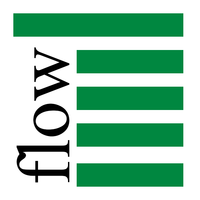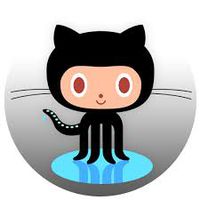News
Extension:DynamicPageList (DPL), version 3.3.3: Warning: Unknown parameter 'dplcache' was ignored. Help: available parameters: addauthor, addcategories, addcontribution, addeditdate, addexternallink, addfirstcategorydate, addlasteditor, addpagecounter, addpagesize, addpagetoucheddate, adduser, allowcachedresults, allrevisionsbefore, allrevisionssince, articlecategory, cacheperiod, categoriesminmax, category, categorymatch, categoryregexp, columns, count, createdby, debug, distinct, dominantsection, eliminate, escapelinks, execandexit, firstrevisionsince, fixcategory, format, headingcount, headingmode, hiddencategories, hitemattr, hlistattr, ignorecase, imagecontainer, imageused, include, includematch, includematchparsed, includemaxlength, includenotmatch, includenotmatchparsed, includepage, includesubpages, includetrim, inlinetext, itemattr, lastmodifiedby, lastrevisionbefore, linksfrom, linksto, linkstoexternal, listattr, listseparators, maxrevisions, minoredits, minrevisions, mode, modifiedby, multisecseparators, namespace, noresultsfooter, noresultsheader, notcategory, notcategorymatch, notcategoryregexp, notcreatedby, notlastmodifiedby, notlinksfrom, notlinksto, notmodifiedby, notnamespace, nottitlematch, nottitleregexp, notuses, offset, oneresultfooter, oneresultheader, openreferences, order, ordercollation, ordermethod, qualitypages, randomcount, redirects, replaceintitle, reset, resultsfooter, resultsheader, rowcolformat, rows, rowsize, scroll, secseparators, showcurid, shownamespace, skipthispage, stablepages, suppresserrors, table, tablerow, tablesortcol, title, titlegt, titlelt, titlematch, titlemaxlength, titleregexp, usedby, userdateformat, uses.
Extension:DynamicPageList (DPL), version 3.3.3: Warning: Unknown parameter 'dplcacheperiod' was ignored. Help: available parameters: addauthor, addcategories, addcontribution, addeditdate, addexternallink, addfirstcategorydate, addlasteditor, addpagecounter, addpagesize, addpagetoucheddate, adduser, allowcachedresults, allrevisionsbefore, allrevisionssince, articlecategory, cacheperiod, categoriesminmax, category, categorymatch, categoryregexp, columns, count, createdby, debug, distinct, dominantsection, eliminate, escapelinks, execandexit, firstrevisionsince, fixcategory, format, headingcount, headingmode, hiddencategories, hitemattr, hlistattr, ignorecase, imagecontainer, imageused, include, includematch, includematchparsed, includemaxlength, includenotmatch, includenotmatchparsed, includepage, includesubpages, includetrim, inlinetext, itemattr, lastmodifiedby, lastrevisionbefore, linksfrom, linksto, linkstoexternal, listattr, listseparators, maxrevisions, minoredits, minrevisions, mode, modifiedby, multisecseparators, namespace, noresultsfooter, noresultsheader, notcategory, notcategorymatch, notcategoryregexp, notcreatedby, notlastmodifiedby, notlinksfrom, notlinksto, notmodifiedby, notnamespace, nottitlematch, nottitleregexp, notuses, offset, oneresultfooter, oneresultheader, openreferences, order, ordercollation, ordermethod, qualitypages, randomcount, redirects, replaceintitle, reset, resultsfooter, resultsheader, rowcolformat, rows, rowsize, scroll, secseparators, showcurid, shownamespace, skipthispage, stablepages, suppresserrors, table, tablerow, tablesortcol, title, titlegt, titlelt, titlematch, titlemaxlength, titleregexp, usedby, userdateformat, uses.
Happy Birthday Organic Design wiki!
Organic Design wiki is ten years old today! Rob made the first edit way back in 2005 on this day, when he created the article CD to boot both Mac and PC on our brand new MediaWiki version 1.4! Rob set up the wiki so that we could collaborate on our code and ideas together more easily, and it really made a huge difference to our productivity.
Over the years the wiki has been used for organising our many different concepts and projects such as many MediaWiki extensions, the original nodal network concept, our many documented procedures and even pictures, notes and the odd photo story. It's also been very useful for storing general technical articles such as Nginx and SSL and for documenting jobs such as Google Maps API and Extension:jQueryUpload.
Since I moved to Brazil the wiki has been my main way to keep friends and family up to date with what Beth and I are up to over here, starting with Moving from Curitiba to Canela all the way up to our recent current posts in 2014 Holiday in Brazil and Our third year on the land which both use the Bliki extension to make the wiki work more like a real blog.
Although our main focus is now the land, meditation and related projects such as our rural net connection and our house, I'm still working mainly with MediaWiki for my job and actively developing and maintaining MediaWiki extensions, the most recent being Extension:WebSocket and AjaxComments 2.0.
So Happy 10th anniversary Organic Design wiki, thanks for all your organisation!
23 July 2014
Ethereum Genesis Sale starts today!
Ethereum is a new crypto-currency that has been under development for the last couple of years lead by Vitalik Buterin. Ethereum is not just another "alt coin" though, it really is the next generation of this paradigm, taking it out of the basic currency role by offering full-scale general purpose distributed application development and testing framework. Ethereum does still have an associated currency aspect called "Ether" (ETH) which performs the important role of "fuel" in the Ethereum network. Distributed applications in the Ethereum network require payments in the form of Ether to fuel every computational step and storage operation on the system.Bitcoin and Litecoin are often thought of as the gold and silver of the crypto-currencies. To continue with that analogy, Ethereum could be considered as the "oil" of crypto-currency since it plays the role of fuel which can be used for any generic application. Another interesting and important aspect is that Ethereum could help to pave the way towards how a real-world resource-based economy might be implemented, which seems to be the only viable way to transcend the economic bottom-line problem.
Yesterday was a special day for the Ethereum community because the so-called "Genesis Sale" of Ether began. The Genesis Sale is a forty two day period in which Ether is being made available in exchange for bitcoin starting at a rate of 2000 ETH per BTC for the first two weeks and then reducing by 30 ETH each day after that. Ethers are purchased from the Ethereum home page at www.ethereum.org. All the BTC accepted by the organisation for he purchase of Ethers are deposited into a single bitcoin address so that people can easily see how much has been bought so far here. As I write this about twenty hours into the sale over five thousand BTC worth has already been purchased which is over three million US dollars!
See also:
- Ether purchase troubleshooting - what to do if your connection died or something
- Background on the mechanics of the ether pre-sale
9 April 2014
Critical bug named "Heartbleed" found in OpenSSL
On April 7, 2014, it was announced that all versions of OpenSSL in the 1.0.1 series up to and including 1.0.1f had a severe memory handling error in their implementation of the TLS Heartbeat Extension. This error could be used to reveal up to 64 kilobytes of the application's memory. The vulnerability had existed since December 31, 2011, and had been adopted to widespread use since the release of the OpenSSL version 1.0.1 on March 14, 2012. By reading the memory of the SSL server, attackers could access sensitive data, compromising the security of the server and its users. Potentially vulnerable secure data include the server's private master key, which enables attackers to break the encryption of the server's earlier eavesdropped communications and impersonate as the server. The vulnerability might also reveal unencrypted parts of other user's sensitive requests and responses, including session cookies and passwords, which might allow attackers to hijack the identity of another user of the service. At its disclosure, some 17% or half a million of the Internet's secure web servers certified by trusted authorities were believed to have been vulnerable to the attack. [more...].
The warning about the bug in OpenSSL coincided with the release of version 1.0.1g of the open-source program, which is the default cryptographic library used in the Apache and nginx Web server applications, as well as a wide variety of operating systems and e-mail and instant-messaging clients. The bug, which has resided in production versions of OpenSSL for more than two years, could make it possible for people to recover the private encryption key at the heart of the digital certificates used to authenticate Internet servers and to encrypt data traveling between them and end users. Attacks leave no traces in server logs, so there's no way of knowing if the bug has been actively exploited. Still, the risk is extraordinary, given the ability to disclose keys, passwords, and other credentials that could be used in future compromises. [more...]
Here at Organic Design we have suffered from this flaw since 1 July 2013 when we upgraded from Debian 6 to Debian 7. Luckily we've been using Perfect Forward Secrecy since then which means that only live man-in-the-middle attacks would have been able to reveal any information, but changing passwords and certificates is still best done to be on the safe side. We upgraded the OS yesterday which implemented this security patch.
See also:
- The Heartbleed Hitlist
- Simple explanation of how it works
- NSA Said to Exploit Heartbleed Bug for Intelligence for Years
28 January 2014
MaidSafe claims to have built a Bitcloud-like system
Source: wired.co.uk
One of the great things about the architecture of the internet is that it is truly decentralised. By design, no one rules it and everyone can use it. But in the last two decades, a small collection of global technology companies have come to control the bulk of internet traffic. Google, Facebook, and others have captured our attention and with it, our data. In the face of such consolidation, concerns about the implications for personal privacy and security have never been more pressing. This is particularly the case following the NSA/GCHQ global surveillance revelations. For many, the solution to this situation is to return the internet to its original state -- distributed, open, and decentralised.It is certainly not the first time that the idea of a peer-to-peer redesign of the whole internet has been vaunted, and it holds great appeal to those who think end-to-end encryption is needed. But such a system, workable at scale, is still just a thought experiment. Or is it?
A Scottish company, MaidSafe, claims that it has nearly finished building a system that does what Bitcloud is proposing. You can imagine our scepticism when a company we've never heard of, in the tiny town of Troon, with a terrible name and a 12-minute promotional video told me it had solved one of the most compelling problems on the internet. [more...]
17 November 2013
Bitcoin hit $500 today!!!
The Bitcoin cryptocurrency's value hit USD $500 today. Many people believe this outrageous price increase to be a temporary bubble, but there are many reasons for it to be going up like this, the main reason for the continual rise in price is that the coins which have a limited supply acts like a share in the Bitcoin economy which is growing much more rapidly than the availability of the coins. The Bitcoin economy as a whole is at about seven billion dollars, but is expected to eventually reach the trillion dollar scale as it becomes more widely accepted and hits mainstream financial businesses and institutions - this would easily push the coin price into the tens of thousands of dollars.
The picture above is a screenshot from the Bitcoinity chart site. When the price hit $500, Kermit the frog appeared shouting "YAAAAAY!!" :-)
11 November 2013
Bitgroup - a P2P groupware project
Organic Design has begun developing a new project called Bitgroup which is a peer-to-peer group-ware and social-network application based on Bitmessage. It allows groups to communicate and organise securely and privately without the need for centralised servers which can be shut down or compromised. It's also designed to work effectively in areas that have very limited or intermittent internet capabilities, and will eventually be able to work without internet at all by using local networks and removable media as it's transport mechanism. [more...]A private P2P framework is essential in our view, but there's also many other things that we at Organic Design have found to be invaluable tools to have available in a decentralised groupware framework, such as support for workflow and contract oriented organisation, trust groups and the prioritisation of the sneakernet and meshing support to name a few. We have so many specific needs and ideas that we'd like to experiment with ourselves, that having our own peer-to-peer groupware framework is the best way forward for us even if there may be some other systems that are more mature or better in some respects.
See also:
The Internet decides to fire the U.S.
In Montevideo, Uruguay this week, the Directors of all the major Internet organizations – ICANN, the Internet Engineering Task Force, the Internet Architecture Board, the World Wide Web Consortium, the Internet Society, all five of the regional Internet address registries – turned their back on the US government. With striking unanimity, the organisations that actually develop and administer Internet standards and resources initiated a break with 3 decades of U.S. dominance of Internet governance. [more...]See also:
Bitmessage gateway up and running
Bitmessage is a peer-to-peer communications protocol based on the Bitcoin crypto-currency used to send encrypted messages to another person or to many subscribers. It is decentralized and trustless, meaning that you need-not inherently trust any entities like root certificate authorities. It uses strong authentication which means that the sender of a message cannot be spoofed, and it aims to hide "non-content" data, like the sender and receiver of messages, from passive eavesdroppers like those running warrantless wiretapping programs.We've now set up a Bitmessage gateway on the Organic Design server which means that existing mail users can now transparently send and receive messages in the Betmessage network. The security of the system is less working in this way since the connection to the Organic Design mail server is a normal SSL connection, but it's still very useful since most users would not be willing to set up a completely new communications application to use Bitmessage, so it helps to get the system more utilised. Users who start working more seriously with it later can take their existing address from the Organic Design gateway and use it in their local Bitmessage client. More detail about the gateway script and usage can be found in our local Bitmessage article.
See also:
Wikimedia starts a major new workflow framework
The Wikimedia foundation have embarked on a grand new project addressing the need for a generic solution to workflow called "Flow". At first glance, Flow is a next generation discussion system - but that is only one part of it. Flow is actually a rethinking of how the foundation works collaboratively on their projects. Initially, the key components of Flow are will include powerful ways for users to have insight into their discussions, interests, subscriptions and tagging.Of particular interest to us here at Organic Design is the incorporation into Flow of a "Workflow Description Language" module which can potentially encapsulate all the systems from discussion and notification mechanisms up to large-scale project workflow scenarios. This is the kind of thing we were trying to head towards with our Wiki Organisation system. For more information, see the Flow Portal.
11 July 2013
The first step towards migrating to Git
Eventually we'd like to migrate our code repositories over completely from Subversion to Git since Git is much more in line with our philosophy being peer-to-peer instead of centralised. A full migration is a big process though - the Wikimedia foundation took well over a year of discussions and testing to achieve this migration.But after the recent migration we made on our web-server from Apache to Nginx, we were left with the problem of anonymous users no longer being able to checkout local read-only copies of our code over HTTP since it relies on a module which isn't available for Nginx. We set up a Guest RSA key so that users could still do this over SSH, but this is a very complicated process for the average user and is a complete nightmare for Windows users.
So we took this problem as an opportunity to take the first step on the Git-migration journey! I found a very useful script by Daniel Pocock here which allows a read-only Git mirror to be maintained automatically from your Subversion repositories. This means anonymous users can easily access and use our public code while we still continue working with our local Subversion repositories without requiring any changes to our procedures :-)
Our GitHub mirror is at github.com/OrganicDesign and I documented my procedure for setting the script up here.













